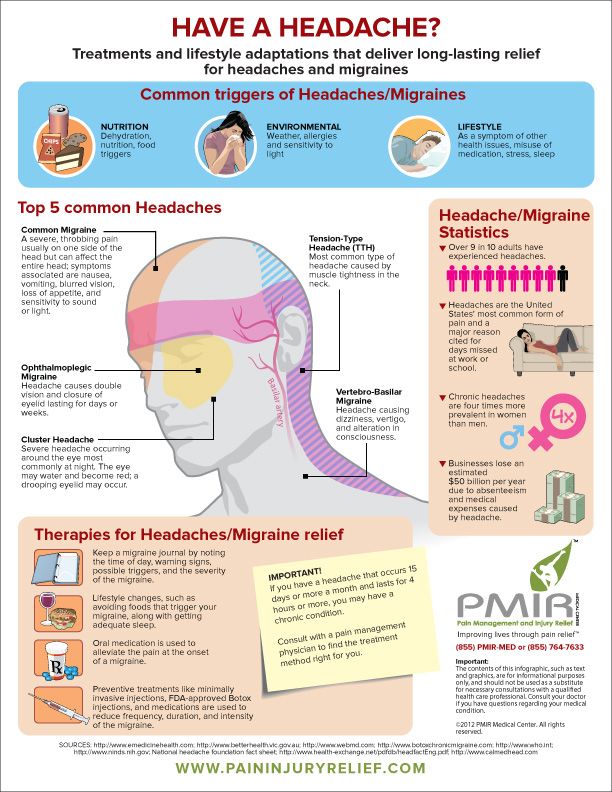Lifting arms over head while pregnant
Can Lifting Your Arms Above Your Head Really Strangle Your Baby? Superstitions Abound
Life
Rido/Fotolia
by Cat Bowen
Picture it: Massillon, Ohio, 1989. I'm but a wee thing visiting my grandmother at the single remaining five-and-dime shop where she worked. She and her friends allowed me to sit on the countertop eating lollipops and drinking fountain cola. A hugely pregnant woman reaches to grab something off the top shelf. Quick as you like, my tiny grandmother goes for her while yelling, "Don't reach that high, you'll strangle your baby!" I was confused at the time, but it turns out, that's a popular superstition. But can lifting your arms above your head really strangle your baby?
Historians of superstition, (yes, such a thing exists) cannot pinpoint exactly where this myth began, but there are similar myths dating back to the premodern era from Shetland to Slovakia and beyond. The hypothesis behind the theory is that when you raise your arms above your head, your baby is able to stretch out a bit more than usual, giving them room to do the gymnastics required to strangle themselves fully while in utero. Fortunately, there is no scientific connection between maternal arm position and cord strangulation.
However, this myth has sailed through time and remained a popular bit of superstition. There are pages and pages of answers to this question on the Snopes boards.
When a baby's cord is wrapped around its neck, it's called a "nuchal cord." It's actually incredibly common and not generally a cause for concern, according to BioMed Central Pregnancy and Childbirth. Most of the time it happens and self-corrects before anyone knows that it does, or it's present at birth with no ill effects observed. According to the article, it happens in up to 37 percent of pregnancies. While there are times, researchers noted, that it is dangerous and does cut off blood flow to the brain, this is rare.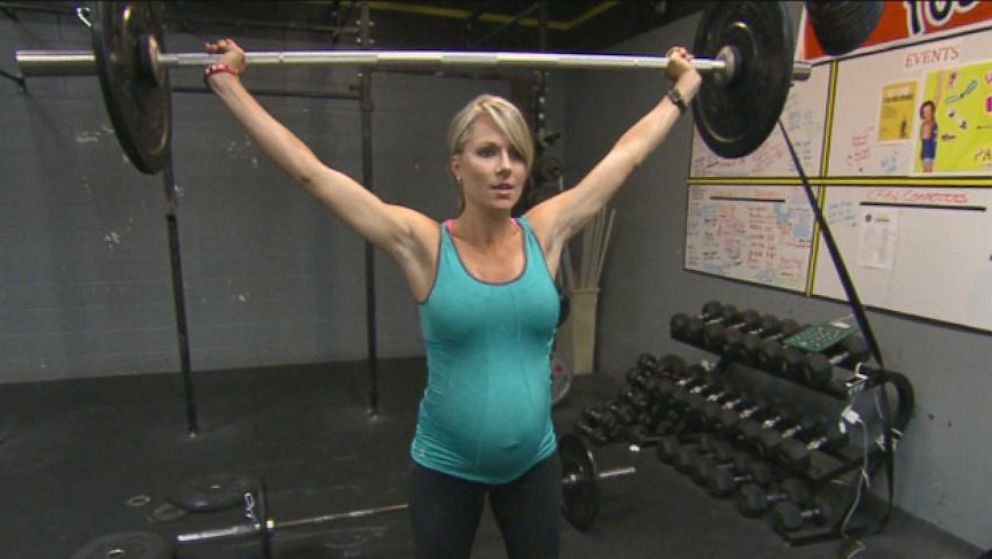
So why has this superstition stuck the way it has? Why is it that one of my only truly clear memories of my grandmother from that time revolve around her chasing down a pregnant woman twice her size with a retractable hook like a Vaudevillian stage manager? (Other than the fact that it was freaking hilarious in hindsight.) Probably because all of her co-workers, mostly immigrants from Eastern Europe in their mid to late 60s, were all in agreement. They nodded their highly coiffed hair and pursed their overly made-up lips. (Allow for hyperbole in my recollection. I was very young, and they wore a lot of perfume. The fumes may have gotten to me.)
As it turns out, there's a whole psychology surrounding superstitions that I was unaware of. Jane Risen, a University of Chicago Booth School of Business psychologist told Vox, “Even smart, educated, emotionally stable adults believe superstitions that they recognize are not rational." It has to do with our ever-evolving minds and the way they process information.
Menachem Hobromowitz, PhD and professor of theology and the Midrash tells Romper, "We have to be able to look at something and have some idea why it happened. If you step on a crack... you get the point. It's not logical, but at least it's not unexplained." He says it's not so different from religion, and may actually be religion's predecessor. "Before we believed, we suspected," he says.
This actually makes a lot of sense. Somewhere, some midwife of a mother had a baby born with a fatal nuchal cord, and she (or he, could be the father), rolled it around in their brain a while and came up with this response that lifting your arms can really strangle your baby — however untrue it may be. It gave them something to point to as a reason, as a blame. As for you? You can spend all day reaching up and down and just end up tired. Your baby will be fine.
Check out Romper's new video series, Romper's Doula Diaries:
Watch full episodes of Romper's Doula Diaries on Facebook Watch.
Pregnancy Advice: Separating Fact from Fiction
Whether it’s that well-meaning lady at work, or your mom, or even that new online group you joined just for moms, it seems like the minute you get that positive pregnancy test, everyone has advice.
But is that advice always sound? How can you tell the fact from the myth? We took a look at five common pieces of advice, and asked Sheri Puffer, M.D., an obstetrician/gynecologist and physician on the medical staff at Texas Health Arlington Memorial, to help us separate the good advice from the bad advice.
Advice: “Taking castor oil will help start your labor.”
Verdict: Fiction
“Castor oil is not recommended to help start labor,” Puffer said. “It will cause you to feel sick and have diarrhea.”
An Australian study found that while castor oil didn’t seem to harm mom or baby, it wasn’t effective as a labor inducer, either.
Advice: “Applying cocoa butter to your stomach while you’re pregnant can help you avoid stretch marks. ”
”
Verdict: Fiction
“Nope,” said Puffer. “There is no proven method of preventing stretch marks. Mostly it is about genetics and how quickly you gain weight. The faster you put on weight, the more your skin stretches.”
However, don’t toss that bottle. “Cocoa butter is never a bad idea though as moisture can help with itching from the stretch marks,” Puffer added.
Advice: “You should avoid salmon and other fish while pregnant.”
Verdict: Fiction, with a caveat
While this one likely has its genesis in warnings not to eat sushi, and to limit tuna, Puffer said this advice was “absolutely false.”
“There are only a few main fish to avoid while pregnant: king mackerel, swordfish, albacore tuna, shark, tilefish,” she said. “Two servings a week of other fish or cooked shellfish are great and full of protein, nutrients and omega-3 fatty acids.”
Advice: “Don’t lift your hands over your head while you’re pregnant – it will cause the cord to strangle the baby. ”
”
Verdict: Fiction
“The truth is, your movements have absolutely no effect on the umbilical cord. It’s pretty common for the cord to be around the baby’s neck when baby is born, and it’s not necessarily anything to worry about,” pregnancy go-to website The Bump added.
“The umbilical cord runs between your placenta and the baby’s umbilicus (stomach area). It is not connected to your arms in any way shape or form,” health and wellness site Verywell also said.
Advice: “You should abstain from alcohol during pregnancy.”
Verdict: Fact
“Absolutely!” Puffer said. “There is no safe level of alcohol during pregnancy.”
“When you drink alcohol during pregnancy, the alcohol in your blood quickly passes through the placenta and the umbilical cord to your baby,” the March of Dimes explains further. “The placenta grows in your uterus (womb) and supplies the baby with food and oxygen through the umbilical cord. ”
”
“When a pregnant woman drinks alcohol, so does her baby,” the Centers for Disease Control added.
If you’d still like to celebrate or kick back here are nine months of mocktails to help you get in the festive spirit without the actual spirits.
Are you newly pregnant and looking for an obstetrician? Head to Texas Health Resources’ Women’s Health page.
90,000 why, during pregnancy, you can’t raise your hands upParete
Updated
Content:
Why do not raise hands up
during pregnancy, what threatens to raise the hands of
,whether it is allowed to stretch after waking up after waking up
Video
Responsibility for the health of the child imposes a taboo on the usual types of physical activity. The expectant mother should give up her favorite sports for a while. But she still needs to move, for example, to do gymnastics for pregnant women. When raising your hands up in the first trimester, the main danger is associated with a deterioration in blood supply and, as a result, a lack of oxygen for the mother and child. In, about the second and third trimesters, complications can be even more serious. Let's talk about them below. nine0005
When raising your hands up in the first trimester, the main danger is associated with a deterioration in blood supply and, as a result, a lack of oxygen for the mother and child. In, about the second and third trimesters, complications can be even more serious. Let's talk about them below. nine0005
Why you shouldn't raise your arms during pregnancy
People say that if a pregnant woman holds her arms above her head, the umbilical cord will wrap around the fetus and suffocate it. But this is nothing more than a myth.
The risk of cord entanglement arises from its length, which is genetically determined. The activity of a woman does not affect this.
However, raising the arms and holding statically carry some danger.
nine0003 In the early stages, it may be associated with oxygen deficiency.
With a long stay with raised hands, the blood supply to the uterus is disturbed. This leads to hypoxia and nutritional deficiencies, which can cause intrauterine growth retardation, mental and intellectual abnormalities in the newborn.
What threatens raising hands in later terms
This position in the second and third trimester also carries certain risks:
- Premature birth. Excessive loads on the peritoneal region with a long hold of the arms above the head or with a sharp rise in the limbs can cause a rupture of the amniotic sac and discharge of water much earlier.
- Placental abruption. There is a risk of complications if the expectant mother has a placental presentation.
- Fainting. As less blood flows to the brain when the arms are thrown up and held for a long time, dizziness or even loss of consciousness occurs. A pregnant woman can fall and get seriously injured, up to a miscarriage. nine0042
- Changing the position of the baby in cephalic presentation. When raising the limbs, the volume of the uterus increases slightly and the baby may roll over. The wrong position can complicate the birth process.
Because of the potential complications, doctors do not advise pregnant women to raise their arms and raise their arms above their heads. But the restriction applies only to sudden movements and a long stay in a similar position. It is worth giving up household chores that require such activity, for example, washing windows or sticking wallpaper. It is better to shift them to the shoulders of relatives. But a short arm raise during gymnastics or yoga will not bring harm. nine0005
But the restriction applies only to sudden movements and a long stay in a similar position. It is worth giving up household chores that require such activity, for example, washing windows or sticking wallpaper. It is better to shift them to the shoulders of relatives. But a short arm raise during gymnastics or yoga will not bring harm. nine0005
Is it allowed to stretch after waking up
Morning "sips" - a natural reaction of the body. It allows you to stretch your muscles after a long stay in a static position, restore blood circulation and shake off the remnants of sleep.
A healthy young woman expecting an heir is not harmed by sipping. Unless, of course, they are sharp and impetuous. In the process of natural morning warm-up, listen to bodily sensations, and if discomfort arises, tell your doctor about it. nine0005
Those who are diagnosed with increased uterine tone should stretch with care.
Sometimes during the morning "pulling" a pregnant woman experiences cramps in the lower extremities. Unpleasant sensations can be associated with a deficiency of valuable elements and fluids, anemia, and the regular use of diuretics. If spasms occur, it is worth undergoing an additional medical examination to identify their cause and eliminate it. nine0005
Unpleasant sensations can be associated with a deficiency of valuable elements and fluids, anemia, and the regular use of diuretics. If spasms occur, it is worth undergoing an additional medical examination to identify their cause and eliminate it. nine0005
If the period of gestation is going smoothly, the expectant mother feels great, and diagnostic procedures do not show pathologies, you should not worry about a short-term raising of hands. A soft and short adoption of such a pose during training for pregnant women or doing simple homework will not harm either the baby or the woman herself.
Video
See below: Do's and Don'ts for Pregnant Women
Photo: ©Depositphotos
* The information provided cannot be used for self-diagnosis, treatment determination and does not replace a visit to a doctor!
Heading Miscellaneous
How to go to the toilet with a tampon
Why do adhesions form after cesarean and how to treat them
Dad can do everything! But mom does everything
Comments
' + '
' +tooltips[tooltip][0] + '
' +'' +tooltips[tooltip][1] +'' + '
' + 'Learn and participate
Baby. ru clubs are a treasure trove of useful information
ru clubs are a treasure trove of useful information
Watch now! Pregnancy Test 4 Who are Korobysh? Let's get acquainted! Problems with parents: who will help? Winter holidays: what to choose? Is there an alternative to school? Speech development of children: when to start? nine0005
true or myth? Why can't a pregnant woman raise her hands up? Truth and fiction.
When expecting a child, a woman should carefully monitor her health. And one of the frequent recommendations of a gynecologist to pregnant women is that you can’t raise your hands. Should this rule be followed and why?
Why should pregnant women not raise their hands?
The position with raised hands becomes unfavorable for the expectant mother and baby from the second trimester of pregnancy. However, the danger exists only if you make too sudden movements or keep your hands up for a long time. nine0005
In order not to harm the baby, pregnant women should not raise their hands for a long time
This situation is unsafe for the following reasons:
- Lack of oxygen.
 In this position, the woman's brain receives less oxygen, which leads to dizziness and fainting. Its entry into the blood also decreases, and this leads to oxygen starvation of the fetus.
In this position, the woman's brain receives less oxygen, which leads to dizziness and fainting. Its entry into the blood also decreases, and this leads to oxygen starvation of the fetus. - Premature birth. In the later stages, a long stay in a position with raised arms can cause a sudden discharge of amniotic fluid and an untimely birth of a child. nine0042
- Fall risk. It is difficult for a pregnant woman to maintain balance due to a shift in the center of gravity, so in this position there is a high probability of an accidental fall.
- Change in fetal position. If you raise your hands up too often, the baby may take the wrong position in the uterus - turn around with the head up.
There is an opinion that this position creates a risk of strangulation of the child by the umbilical cord, but this has not been officially confirmed. The position with arms raised up does not affect the entanglement of the baby in the umbilical cord. nine0005
Can you do the exercises with your arms raised?
Special exercises and moderate physical activity are a prerequisite for a normal pregnancy. The expectant mother can easily afford some activities where you need to raise your hands up:
The expectant mother can easily afford some activities where you need to raise your hands up:
- light exercises;
- yoga, gymnastics or pilates for pregnant women;
- swimming in the pool;
- housework that does not require much effort. nine0049
- mental and psychic abnormalities develop;
- fetus develops slowly;
- the baby does not adapt well to the new environment after childbirth;
- miscarriage may occur.
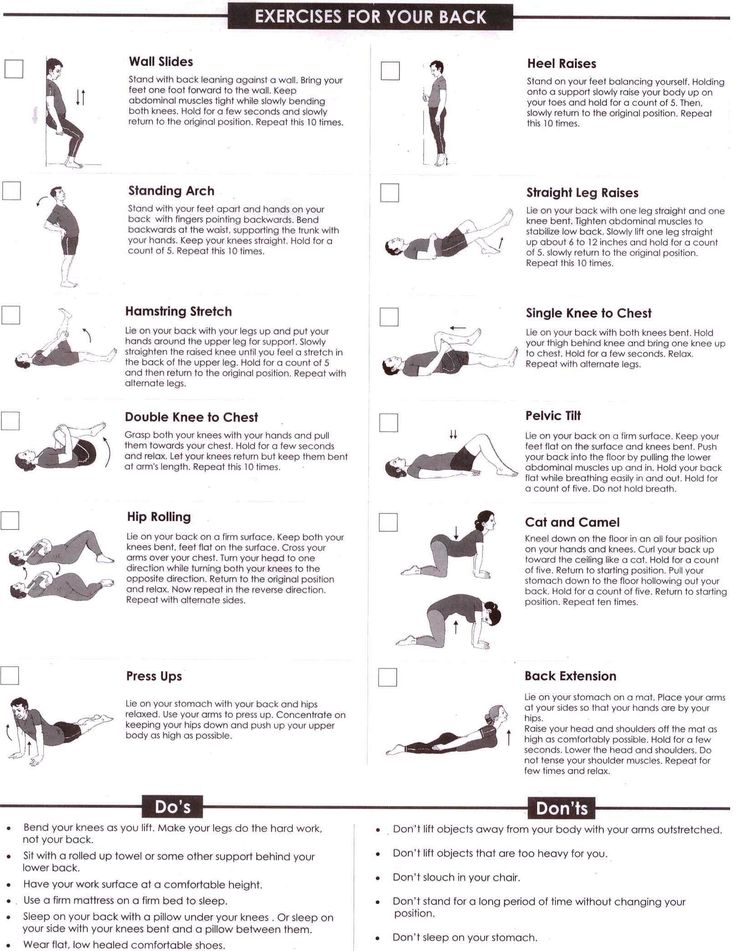
- Sudden and frequent raising of hands provokes circulatory disorders in the brain nine0158 pregnant. This fact is also confirmed from a medical point of view. As a result, a pregnant woman may feel dizzy, lose consciousness. This is very dangerous, especially if there is no person nearby who will provide the necessary assistance.
- Raised arms late in pregnancy may cause preterm labor . This is due to the fact that the position of the body, causing discomfort, provokes the outflow of amniotic fluid. Which leads to childbirth. Sometimes women who over-carry a baby in order to give birth faster hang tulle at home. nine0042
- his physical development may be slowed down;
- increases the risk of mental and mental disorders in the future; nine0041 a newborn child will slowly adapt to a new environment for him;
- Premature births and miscarriages happen.
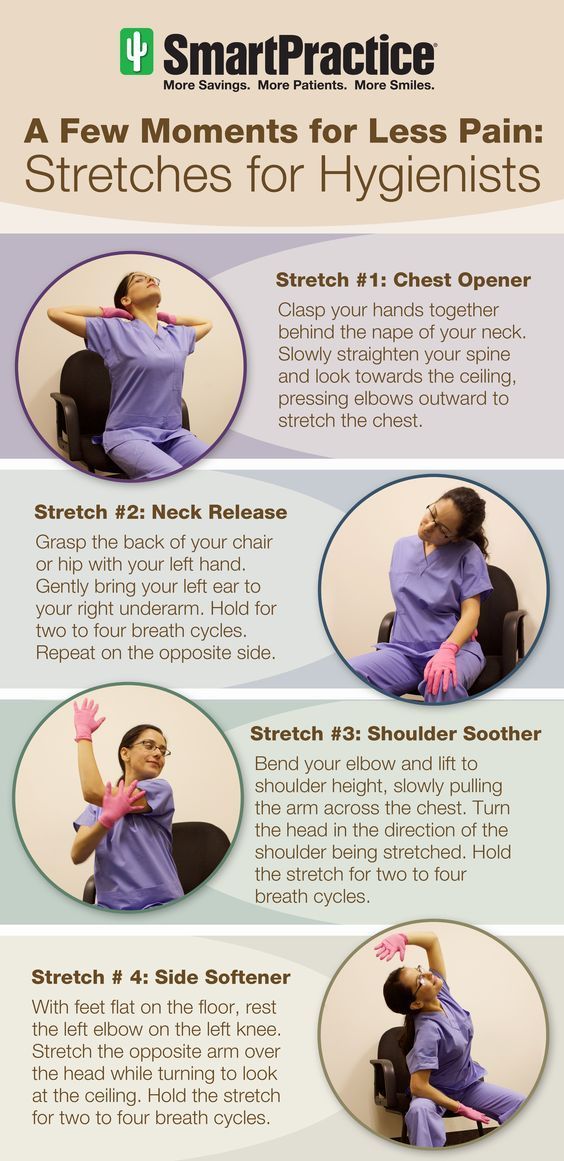
- Polyhydramnios. In this case, the baby has more opportunity to move in the mother's tummy and entanglement of the umbilical cord may occur. nine0042
- Extended umbilical cord. It is laid down genetically. The longer the umbilical cord, the more often pathology occurs.
- Lack of oxygen in the fetus.
 If a child experiences hypoxia in the womb, he begins to actively move.
If a child experiences hypoxia in the womb, he begins to actively move. - Mother's stress. In a woman who is constantly experiencing stress, the level of adrenaline in the blood rises, which makes the fetus more active and mobile.
- stays with his hands up for a long time,
- throw them up sharply overhead.
When exercising, make sure that they do not cause excessive fatigue. Only in this case, physical activity will not harm, but will benefit - it will strengthen the heart, tone the muscles and improve blood circulation.
Usually, the expectant mother herself feels what loads she can do, and does not make dangerous movements for the fetus. Classes where you need to raise your hands should not be afraid either. We will explain why: pregnant women should not raise their hands up only for a long time, that is, be in a tense static position. nine0005
Moderate physical activity will not hurt, but on the contrary, will be useful. And if for a few seconds you need to raise your hands up, do not be afraid.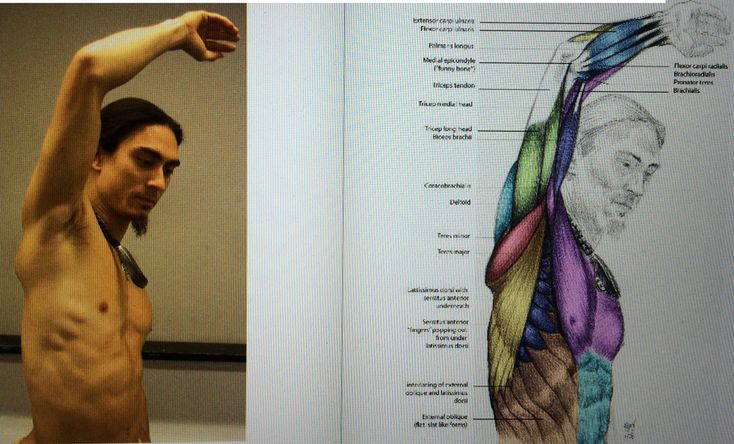 But if doubts remain, consult with the doctor who observes your pregnancy.
But if doubts remain, consult with the doctor who observes your pregnancy.
Expecting a child is associated with a number of restrictions in a woman's life: she learns to think not only and not so much about herself, but about the future baby. And taking into account the suspiciousness of female nature, there are prohibitions on seemingly completely harmless actions. Of course, there are many myths among them, but there are also well-founded fears. Consider what is fraught with when a pregnant woman raises her hands up. nine0005
Pregnant women should not raise their arms up: myth or reality
It is impossible to 100% reject the fact that pregnant women should not swing their arms up. This is due to the fact that with a sharp throw up of the arms or a delay in this position, the blood vessels are pinched, which means that the access of oxygen for the baby through the bloodstream is limited, which, in turn, provokes increased activity of the fetus and thereby increases the risk of entanglement of the fetus with the umbilical cord. The latter is the threat provoked by the movement of the expectant mother with her hands up. nine0005
The latter is the threat provoked by the movement of the expectant mother with her hands up. nine0005
There is a risk of squeezing the blood vessels with a sudden raise of the arms
Where did the belief come from that one should not raise the arms up
The ban on many physical activities is associated with the belief that certain movements, including raising the arms up, can provoke entanglement of the child's neck umbilical cord, which will lead to asphyxia either in the womb or during childbirth. This, in turn, can cause a violation of the development of the baby (low weight, the threat of physical and mental abnormalities). nine0005
The roots of the belief that by raising her hands up, a woman puts the child at risk of becoming entangled in the umbilical cord, lie in the distant past. In those days, pregnant women had to carry water in buckets, do hard work in the field and at home, despite their position. And heavy physical exertion of any (!) nature can provoke complications in the process of bearing a child, including entanglement with the umbilical cord.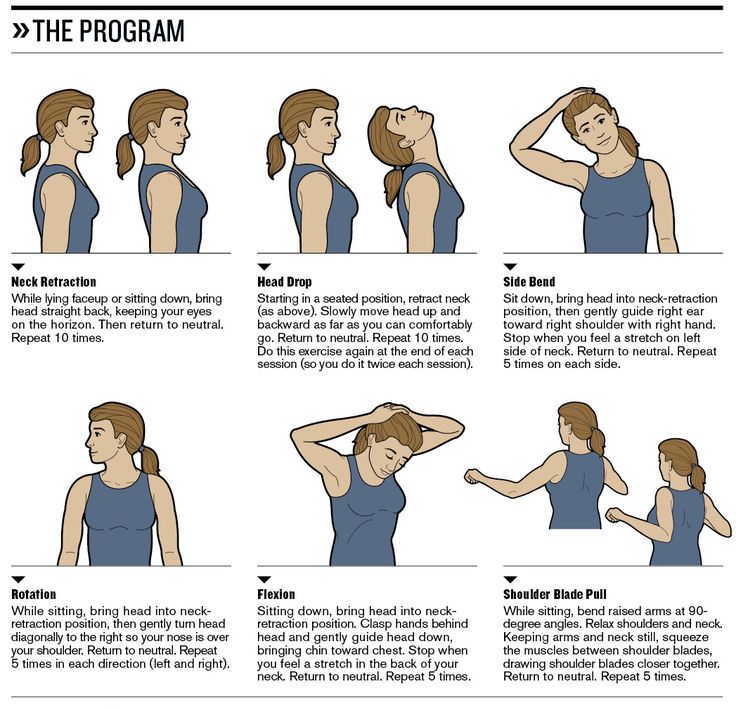
The raised arms position is just one of the prerequisites for wrapping the baby around the umbilical cord
Causes of umbilical cord entanglement in the baby
As practice shows, umbilical cord entanglement can occur regardless of whether the mother had any physical activity.
Why you shouldn’t stay in a pose with raised arms for a long time
In addition to the risk of entanglement, there are several other reasons why a protracted position with raised arms is not recommended for pregnant women:
Experts say that these risks can be reduced by a more attentive attitude towards yourself and your habits, especially starting from the second trimester, when the risk of harming the baby increases several times. nine0005
If there is a threat of miscarriage at an early date, the prohibition on the pose with raised hands takes effect earlier, from the moment of its occurrence.
Video: allowed and forbidden exercises for pregnant women - consultation from a yoga instructor
will have a positive effect on the fetus. But this does not at all negate the usefulness of moderate physical activity for expectant mothers who do not have complications, including when doing gymnastics for pregnant women, doing yoga or ordinary hanging clothes. nine0005
But this does not at all negate the usefulness of moderate physical activity for expectant mothers who do not have complications, including when doing gymnastics for pregnant women, doing yoga or ordinary hanging clothes. nine0005
Many doctors strongly recommend that women continue to exercise during pregnancy, no doubt within reason, so as not to harm the health of the baby. Sports clubs offer special programs for expectant mothers that allow you to keep fit even throughout the entire nine months of bearing a child.
Of course, there are situations when pregnancy is rather tiring, causing nausea, bouts of fatigue and drowsiness. In this case, before starting training, you should consult with a gynecologist. nine0005
After all, giving birth to a healthy and strong baby is a real test for a woman. Sports help strengthen muscles and properly prepare for childbirth.
Moreover, wise nature has done everything possible so that for nine months the woman does not exhaust herself with active physical exercises in the gym, but only slightly maintains the necessary physical form.
This is explained by the fact that during pregnancy, the activity of the endocrine system drastically changes nine0158, as a result, the endurance and elasticity of muscles and tendons are significantly increased. Nature naturally made sure that childbirth was as easy as possible. However, you can help both yourself and nature to increase the endurance of your body.
What kind of physical activity is allowed during pregnancy
Breathing exercises
Proper breathing in everyday life is a process that many do not pay attention to. However, during labor, it is thanks to the correct rhythm and frequency of breathing that the muscles of the uterus contract. This is how the body receives the necessary amount of oxygen. nine0005
For the best possible delivery, it is important to exercise regularly breathing exercises, which will help at the right time to concentrate all the forces on the main thing.
Ordinary singing is also one of the types of breathing exercises, as a result, you will soon feel how your lungs and diaphragm muscles are getting stronger.
Relaxation
If you know how to relax, then your birth will be easy and as painless as possible . nine0158 To avoid severe pain during childbirth, it is necessary to be able to relax all the muscles of the body.
Of course, the ability to properly relax does not guarantee that childbirth will be completely pain-free, you will have to endure discomfort. Experienced experts advise not to interfere with the uterus to do on its own what nature intended.
When a woman in labor relaxes her body, the baby can move through the birth canal much easier. Thus, the whole process of childbirth is smoother and less painful. In addition, proper relaxation contributes to the early opening of the uterus during childbirth, which means that childbirth will be faster. nine0005
Many experts advise to relax the muscles of the mouth as much as possible during childbirth, thus, it is much easier to relax the muscles of the uterus.
Endurance and plasticity
Plasticity is necessary for a woman to control her body during contractions. This is how you can find a position in which contractions are not felt so strong and sharp.
This is how you can find a position in which contractions are not felt so strong and sharp.
As far as endurance is concerned, this is an indispensable condition for childbirth. After all, in order to help a child to be born, strength is required. nine0005
Physical activity in the home
Many household activities also help to keep fit. For example, walking, twists and turns, squats. All these exercises contribute to an easy and quick delivery . Thanks to this set of exercises, you can strengthen the muscles of the lumbar girdle, give them additional elasticity and endurance.
There are also certain household tasks that are prohibited during pregnancy . This is work related to jumping, running, pull-ups, weight lifting. nine0005
Yes or no: we make a decision
One can often hear a warning from grandmothers that pregnant women should not raise their hands up. Is it true? And why did such a superstition appear?
According to experts, if the pregnancy is easy and without complications, do not exclude physical activity and don't be afraid of exercises that involve raising your arms. You can do light exercise daily and do light housework.
This will not harm, but on the contrary, it will strengthen the heart and activate blood circulation.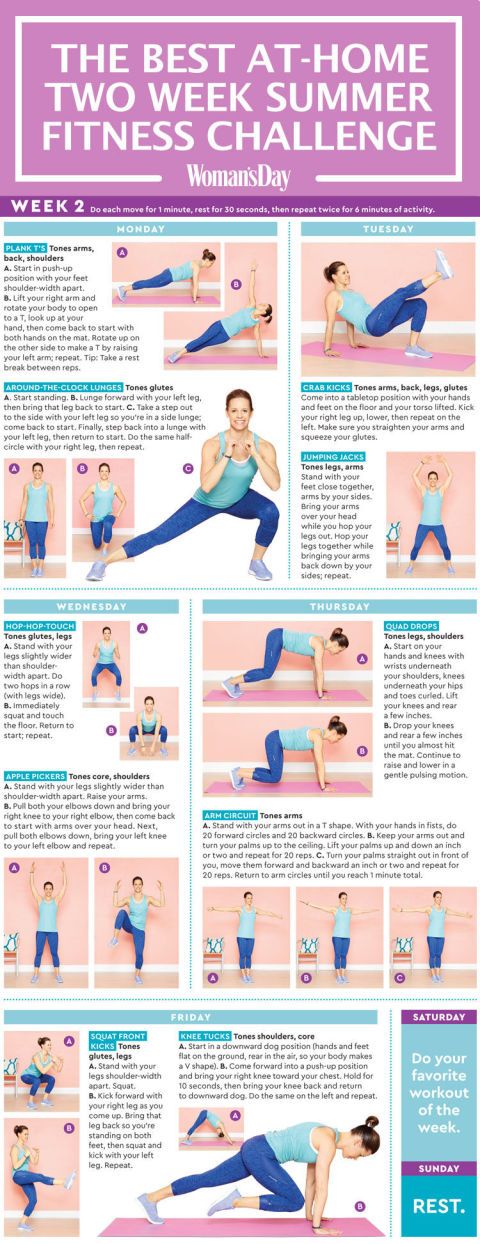 A set of exercises will help you choose your attending gynecologist, who is familiar with all the features of your pregnancy. nine0005
A set of exercises will help you choose your attending gynecologist, who is familiar with all the features of your pregnancy. nine0005
But after the thirtieth week of pregnancy, you should be more careful about yourself and your baby, not to expose your body to excessive stress. And even more so try to avoid a sharp and frequent lifting of hands.
All women who have been pregnant at least once know how many prohibitions and restrictions this period of life will entail. Almost everything will have to change: diet, sleep and rest. In addition, a woman in an interesting position expects many prohibitions, some of which can be explained by logical thinking, others cannot. One of these restrictions is the ban on raising both hands up. Why shouldn't pregnant women raise their hands? Is there even a grain of truth in this? Let's figure it out. nine0005
Is it possible for pregnant women to raise their hands: facts and conjectures
Why should pregnant women not raise their hands? In this case, there are several caveats.
1. There is an opinion that if the expectant mother constantly raises her hands and keeps them in this position for quite a long time, then the baby can become entangled in her own umbilical cord.
Such a horror story can often be heard from older people. This opinion has been around for a very long time. The thing is that many years ago, in view of the lack of decent living and working conditions, women did all the hard work in their homes. Now it’s even hard to imagine what it’s like to wash a blanket or rug with your hands, and then take out and hang wet things outside to dry. No wonder that such hard physical labor could lead to various disorders in the development of the fetus, up to miscarriages. In order to somehow protect their beloved daughters, granddaughters and daughters-in-law, women poured out such warnings. nine0005
What is really going on? You should know that this warning has not been confirmed by medical practice. Modern doctors also refute the connection between the entanglement of the umbilical cord and the vertical position of the hands. It turns out that this statement can be called an ordinary superstition or myth.
It turns out that this statement can be called an ordinary superstition or myth.
Note: umbilical cord entanglement can indeed occur, but this is due only to the excessive activity of the baby in the mother's womb. Usually such a violation can occur if the umbilical cord is longer than the average. Why the umbilical cord is longer is unknown, therefore it is difficult to answer the expectant mother how to prevent the entanglement of the fetus. nine0005
2. If you stand motionless for a long time with your arms raised vertically, blood circulation in the uterus may be disturbed.
This statement is actually confirmed by medicine. In turn, impaired blood flow in the uterus can cause fetal hypoxia. An insufficient supply of oxygen can be very dangerous for a child:
However, in order to harm your baby, you have to stand like this for more than a dozen minutes. As a rule, in order to hang things, it takes much less time.
3. There is another opinion why pregnant women should not raise their hands. Some argue that this position of the body can disrupt the circulation in the brain of the mother herself. nine0005
As you know, impaired blood circulation in the brain can lead to loss of consciousness. If a pregnant woman faints and no one is around, then such an outcome can have a deplorable effect on both the mother herself and her unborn child.
4. After the thirtieth week, raising the arms up is dangerous in that there may be a risk of premature birth.
The whole problem is that such a very uncomfortable position can lead to the outflow of amniotic fluid, which can lead to unexpected birth. It is even known that pregnant women, who are already overbearing their babies in time, often subject their bodies to such loads. Thus, they seek to induce natural childbirth, and not lie in the hospital under droppers. There are cases that after pregnant women at such a period began to hang tulle or curtains, they immediately ended up in the long-awaited maternity ward. nine0005
Thus, they seek to induce natural childbirth, and not lie in the hospital under droppers. There are cases that after pregnant women at such a period began to hang tulle or curtains, they immediately ended up in the long-awaited maternity ward. nine0005
So, after all, is it possible or not? Doctors are extremely ambiguous about these superstitions. It is only known that medical professionals advise to refrain from raising hands up only after the 30th week. The reasons were mentioned above: the risk of hypoxia of the child, possible fainting and even premature birth.
However, it is also not worth avoiding all housework completely. If your pregnancy is going well, there is no threat of miscarriage, the placenta is in a normal state, the position of the unborn baby is correct, then a small “home” load is not only allowed, but also welcomed. If you constantly and excessively take care of yourself for no apparent reason, then such a “lazy” pastime can lead to stagnation of blood. nine0005
nine0005
It is known that special gymnastics or can improve the functioning of the heart, activate the entire blood flow in general, so that the baby will receive all the nutrients he needs in a timely manner. Don't be afraid to move! The main thing is not to overdo it. If you want to learn more about what you can and cannot do during pregnancy, you can always contact your gynecologist.
Pregnancy is an important period in a woman's life. On the one hand, she is looking forward to the appearance of the baby with impatience and joy. On the other hand, this is a time of anxiety: the expectant mother worries about the health of her child, she is afraid of losing him or harming him somehow. Therefore, he tries to take care of himself, not to overexert himself. nine0005
But sometimes it is difficult to understand whether this or that prohibition for a woman is a superstition or a fact confirmed by doctors. One such example is the statement that pregnant women should not raise their hands, otherwise they can harm the fetus.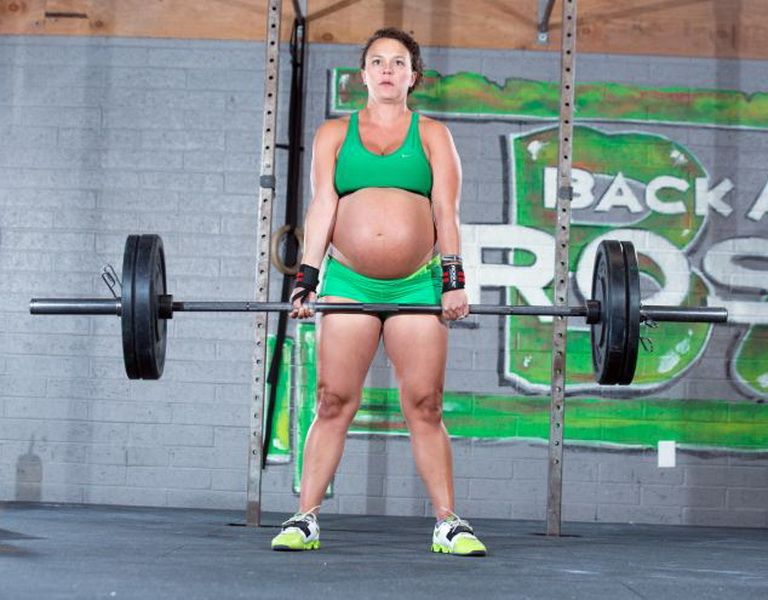
Is it true? Why is it not advised to pull your arms up during pregnancy?
Umbilical cord entanglement: myth or truth?
The most common information is that such physical activity is prohibited, since the umbilical cord can wrap around the baby's neck, and he will either die in the womb or suffocate at birth. nine0005
However, most doctors say that these fears are unfounded. The entanglement of the baby's umbilical cord is also possible for expectant mothers who were not fond of physical exercise and did not do housework.
In what cases can umbilical cord entangle the fetus?
This situation occurs when the following factors are present:
As you can see, raising the arms during pregnancy is not included in the list of risk factors, so in most cases, doctors do not associate it with the possible entanglement of the baby's umbilical cord and the emergence of a threat to his health and life. nine0005
Why did this statement come about?
There is even an explanation for the origin of this myth. A few decades ago, our grandmothers were forced to do physical work during pregnancy, for example, to carry water from a well, wash clothes on the river, and then carry it back, lift weights while working in the garden or at work.
A pelvis with heavy sheets or clothes is a serious burden during pregnancy, so all sorts of complications often occurred during childbirth.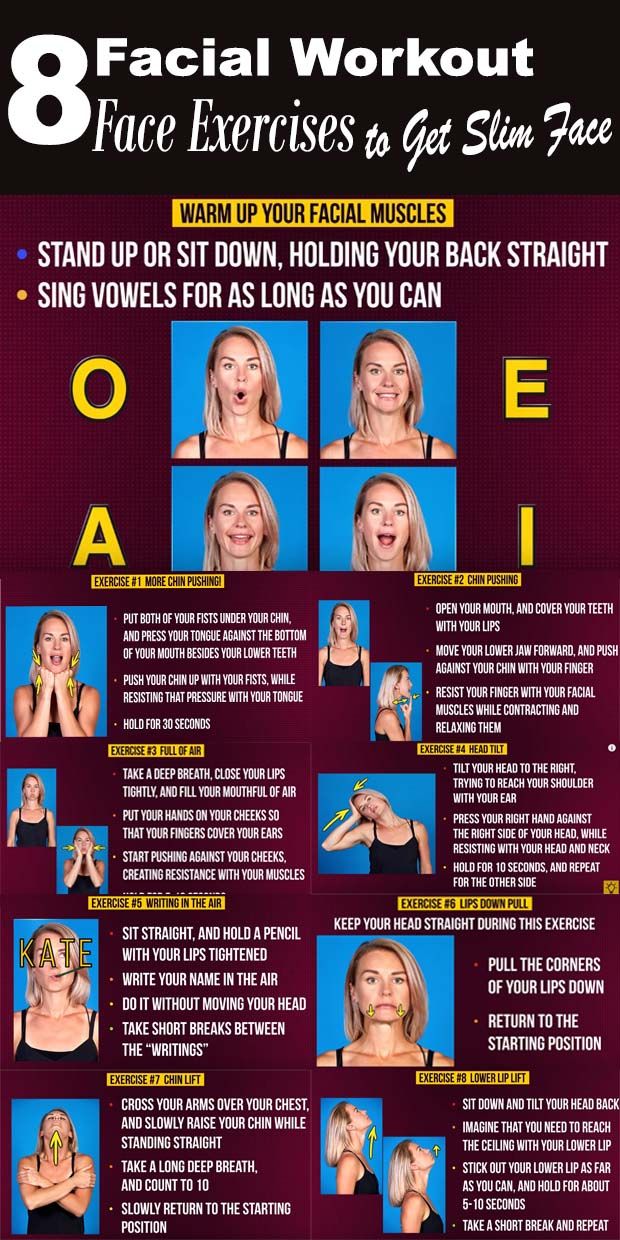 nine0005
nine0005
Evidence in favor of this argument
However, some experts, including gynecologist A. G. Nikitina, warn that expectant mothers in the first half of pregnancy:
In this position, a number of blood vessels are clamped in a pregnant woman and less oxygen is supplied to the fetus. Therefore, he may experience anxiety and move vigorously, which means that there is a threat that the umbilical cord will wrap around the baby. nine0005
Why is it still undesirable to pull the arms up?
In addition to the threat of entanglement, there are other reasons why it is undesirable to raise your arms during pregnancy:
Fetal hypoxia
It is a proven fact that a woman who stands with her arms up for a long time, blood circulation in the uterus is disturbed. Because of this, the unborn child receives less oxygen, and this is a threat to its development and even life.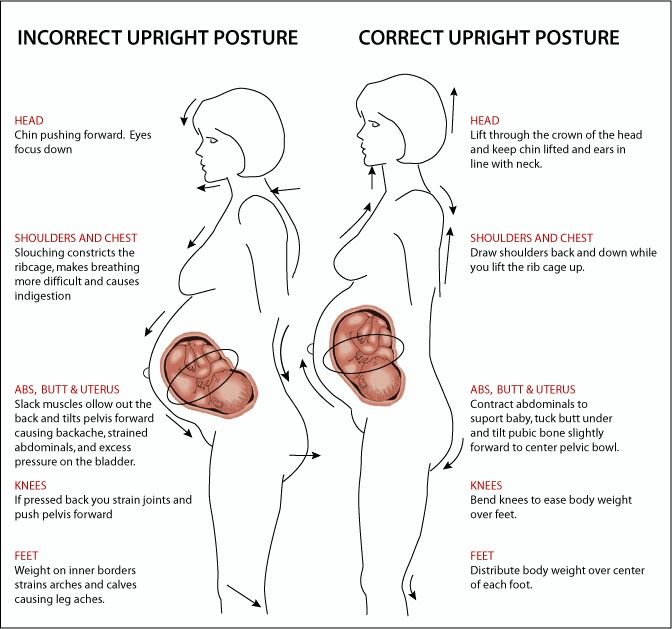
A pregnant woman may have a miscarriage, or the fetus may develop much more slowly than it should. Problems may also appear after childbirth: the child will not adapt well to a new environment for him, and later he may develop mental or mental abnormalities. nine0005
Uterine hypertonicity
For women who have problems with uterine tone, any physical activity is dangerous. It can lead to hypertonicity, and later - to a shortening of the cervix, which can cause premature birth.
Rupture of the amniotic sac
If the mother-to-be suddenly raises her arms in the middle of pregnancy, there is a risk of rupture of the amniotic sac (which will lead to preterm labor). If this does not happen at a later date, then with the complete discharge of amniotic fluid, a woman may lose a child. nine0005
However, such cases are recorded not too often, and the main cause of the pathology is not sudden movements, but an infection that has penetrated into the uterus.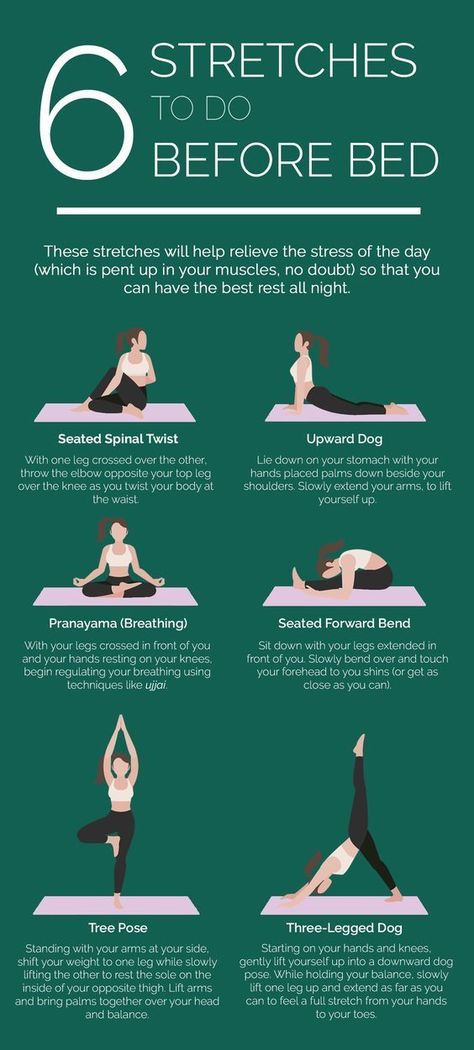
The baby will change position
The correct position of the baby in the uterus is head down, this position of the fetus is optimal for future births. But if the baby becomes uncomfortable (due to the raised arms of the mother), he may roll over.
Risk of injury
Stretching up during pregnancy is also dangerous because of the banal loss of balance and the risk of injury. For example, if a woman decides to hang curtains herself, hang linen or a heavy and wet blanket: one wrong move, and she may fall. nine0005
At what stages of pregnancy are restrictions imposed?
We found out why pregnant women should not raise their hands up. But for how long should this ban be observed?
Pregnant women must be aware of the dangers of holding and pulling their arms over their heads throughout the entire period of bearing a child. However, women should be especially careful during long periods of pregnancy, shortly before childbirth.
But this does not mean that pregnant women need to give up any physical activity.

